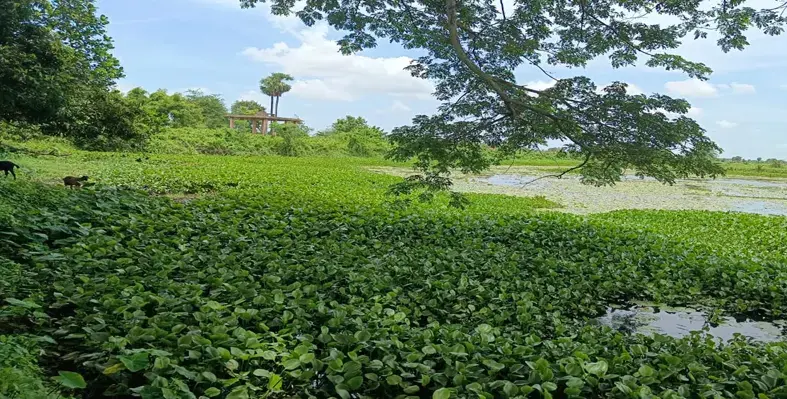ICRISAT's solar-powered water hyacinth harvester, designed and fabricated in-house by a team of scientists received its first grant, boosting its ability to be used with ease by rural farming communities
The solar-powered equipment offers substantial benefits, including 50–60% savings in cost, time, and labour, while prioritising using clean energy. Being priced at under US$2,357 makes it an ideal choice for farmers who are unable to afford more expensive, sophisticated machinery.
Water hyacinth is widely known to be a destructive weed that infests rural ponds, disrupts ecosystems, harms fisheries and blocks canals. Their ability to rapidly grow and proliferate into over 600,000 plants within 6-8 months makes them difficult to control. While chemical and biological removal of this weed is too expensive and unsustainable in the long term, manual or mechanical harvesting is seen as an option.
The harvester was developed as part of the 'Sustainable Valorisation of Water Hyacinth Biomass through Aerobic Composting as a Rural Enterprise—A Waste to Wealth Initiative' project supported by the Department of Agriculture and Farmers' Empowerment, Government of Odisha, India.
Dr ML Jat, research programme director of Resilient Farm and Food Systems, ICRISAT explained that their experiments successfully demonstrated that 72,000 kg of water hyacinth can be mechanically harvested from a 1.2 ha pond in just two to three days by a team of two or three people. Manual harvesting however, required 10-20 labourers and took 18-20 days to complete.
Additionally, women-led enterprises such as self-help groups (SHGs) can play a key role in converting biomass into compost, fish feed, or handmade paper, thereby creating significant socio-economic and environmental impacts.
“Water hyacinth infestation is a global environmental challenge. This cost-effective harvester reflects ICRISAT’s dedication to creating environment-friendly solutions tailored to the needs of rural communities that are also technologically and economically sustainable,” stated Dr Stanford Blade, director general-interim of ICRISAT, while commending the team behind the mechanical harvester.




